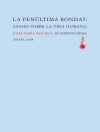In this risk-taking book, a major feminist philosopher engages the work of the actor and director who has progressed from being the stereotypical “man’s man” to pushing the boundaries of the very genres—the Western, the police thriller, the war or boxing movie—most associated with American masculinity. Cornell’s highly appreciative encounter with the films directed by Clint Eastwood revolve around the questions “What is it to be a good man?” and “What is it to be, not just an ethical person, but specifically an ethical man?” Focusing on Eastwood as a director rather than as an actor or cultural icon, she studies Eastwood in relation to major philosophical and ethical themes that have been articulated in her own life’s work.
In her fresh and revealing readings of the films, Cornell takes up pressing issues of masculinity as it is caught up in the very definition of ideas of revenge, violence, moral repair, and justice. Eastwood grapples with this involvement of masculinity in and through many of the great symbols of American life, including cowboys, boxing, police dramas, and ultimately war—perhaps the single greatest symbol of what it means (or is supposed to mean) to be a man. Cornell discusses films from across Eastwood’s career, from his directorial debut with Play Misty for Me to Million Dollar Baby.
Cornell’s book is not a traditional book of film criticism or a cinematographic biography. Rather, it is a work of social commentary and ethical philosophy. In a world in which we seem to be losing our grip on shared symbols, along with community itself, Eastwood’s films work with the fragmented symbols that remain to us in order to engage masculinity with the most profound moral and ethical issues facing us today.
A propos de l’auteur
Drucilla Cornell was Professor Emerita of Political Science, Comparative Literature, and Women’s and Gender Studies at Rutgers University; Professor Extraordinaire at the University of Pretoria, South Africa; and a visiting professor at Birkbeck College, University of London. With a background in philosophy, law, and grassroots mobilization, she played a central role in the organization of the memorable conferences on deconstruction and justice at the Benjamin N. Cardozo School of Law in 1989, 1990, and 1993. She was the author of The Philosophy of the Limit (1992), Feminism and Pornography (2000), and Law and Revolution in South Africa: u Buntu, Dignity, and the Struggle for Constitutional Transformation (2014). She has also coedited several books: Feminism as Critique: On the Politics of Gender (1987), with Seyla Benhabib; and Hegel and Legal Theory (1991) and Deconstruction and the Possibility of Justice (1992), with David Gray Carlson and Michel Rosenfeld. She was part of a philosophical exchange with Seyla Benhabib, Judith Butler, and Nancy Fraser entitled Feminist Contentions (1995). In addition to her academic work, she wrote four produced plays.












